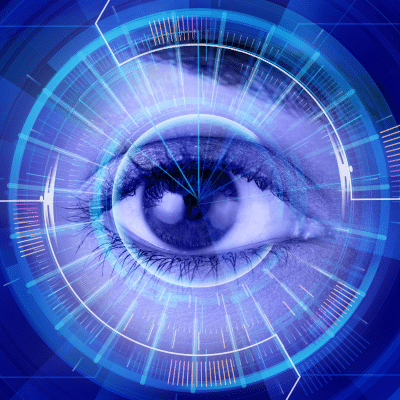|
Getting your Trinity Audio player ready...
|

Biometric security refers to the use of unique physiological or behavioral characteristics to verify an individual’s identity. Unlike traditional authentication methods such as passwords or PINs, which can be forgotten, stolen, or easily shared, biometric identifiers are inherently linked to an individual and are difficult to replicate.
Some common biometric identifiers include:
- Fingerprint Recognition: This method analyzes the patterns of ridges and valleys on a person’s fingertip to verify their identity. Fingerprint scanners are widely used in smartphones, laptops, and access control systems.
- Facial Recognition: Facial recognition technology captures and analyzes facial features such as the distance between the eyes, nose, and mouth to identify individuals. It is commonly used for unlocking smartphones, surveillance systems, and airport security.
- Iris Recognition: Iris recognition involves scanning the unique patterns in the colored part of the eye (iris) to authenticate a person’s identity. This method is highly accurate and is often used in high-security environments such as government facilities and border control.
More biometric identifiers:
- Voice Recognition: Voice biometrics analyze the unique characteristics of an individual’s voice, such as pitch, tone, and rhythm, to verify their identity. It is used for authentication in call centers, banking services, and voice-controlled devices.
- Palm Vein Recognition: This method utilizes near-infrared light to capture the vein patterns beneath the skin’s surface in the palm of the hand. Palm vein recognition offers a high level of security and is used in banking, healthcare, and access control systems.
- Behavioral Biometrics: Behavioral biometrics analyze patterns in human behavior, such as typing rhythm, mouse movements, and gait, to authenticate users. This method is often used for continuous authentication in online banking and fraud detection systems.
Biometric security offers several advantages over traditional authentication methods, including increased convenience, improved security, and reduced reliance on passwords. However, it also raises concerns about privacy, data protection, and potential misuse of biometric data. As biometric technologies continue to advance, it is essential to balance security requirements with ethical considerations. This helps the regulatory compliance to ensure responsible implementation and use.
Learn more about TWINTEL or call us at (888) 428-0599 or schedule a meeting today.
Click Here To Claim Your FREE Assessment and Action Plan
Mark Johnson is a passionate technology professional with over 11 years of experience in the Managed Services IT space and a wide variety of industry-leading certifications. Mark’s extensive Managed IT experience and aptitude for quickly learning and adapting to new technologies has equipped him to offer valuable insight across a broad spectrum of business technology solutions.
